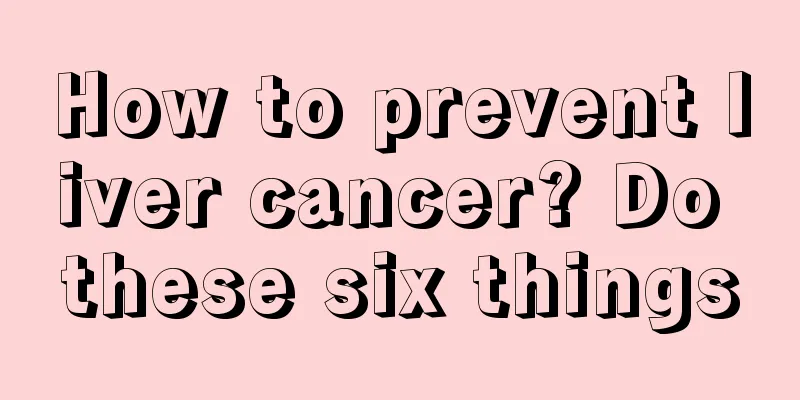How to cut corns

|
Corns are a relatively common disease that can cause many effects on the patient's body. First of all, the patient cannot wear very hard shoes. If the shoes are too hard, it will be very painful to walk, and they may also be damaged. Especially for many people who have deformities in their feet, they should pay more attention to protective work in this regard. The main treatment is local treatment, or physical and other surgical methods to achieve the treatment effect. Medication Shoes should fit the feet properly, and should not be too tight or hard. Shoes should be lined with thick and soft insoles. If there are foot deformities, they should be corrected. 1. Local treatment Commercially available corn plaster: first soak the affected area in hot water, peel off the surface keratin hyperplasia, and carefully peel off the central keratin plug, and apply the corn plaster to this core area. Change the dressing once a week, peel off the whitened part before changing the dressing until the damage falls off. 50% salicylic acid ointment or salicylic acid collodion. First, cut a small piece of adhesive tape according to the size of the corn lesion, and stick it around the lesion to protect normal skin. Apply the medicine on the surface of the lesion, and then cover it with adhesive tape to fix it. Change it every 24 to 48 hours. Before changing the dressing, peel off the softened and whitened part of the lesion until the lesion falls off. 2. Physical therapy CO2 laser treatment can be used: local disinfection, local anesthesia, and then CO2 laser burning. Liquid nitrogen can be used to freeze the affected area, but it will cause obvious pain. 3. Surgical excision Generally, no anesthesia is required. Use a sharp scalpel to make a circular incision at the edge of the thickened keratin parallel to the lesion. Clamp it with toothed tweezers and cut along the blue line, deep into the base to dig out the corn. Then bandage it with sterile ointment and gauze. 4. Traditional Chinese Medicine Treatment: Mash the Chinese medicine duck gall and apply it topically. Before using the medicine, cut a round hole the same size as the corn on the adhesive tape and stick it on the affected area to protect the surrounding skin. Apply the medicine on the lesions and then cover with adhesive tape to secure. Change the dressing every five days. (1) Apply crystal ointment externally. (2) Soak your feet in a decoction of 30g of Cibotium barometz and 30g of Kochia scoparia. Soak for 30 minutes each time, once a day. One course of treatment is 10 days. Diet and health care What is good to eat after corn removal surgery? 1. Eat more foods containing vitamin C, such as kiwi, orange, lemon, and grapefruit. 2. Eat more vitamin A. It is mainly found in foods such as fish oil, carrots, and tomatoes. What foods should you avoid eating after corn removal surgery? Eat less musk deer meat, fermented bean curd, onions, peppers, leeks, etc. Preventive Care Corns mainly occur on the feet, mostly due to toe deformities or wearing narrow shoes for a long time. Therefore, it is necessary to correct foot deformities in time, wear loose shoes, and pay attention to placing soft cushions on parts that are under pressure or friction. If there is local keratin thickening, you can soak it in warm water frequently and then use a knife to scrape off the thickened keratin layer to prevent the formation of corns. During production labor, you should also pay attention to wearing gloves to prevent callus formation. Prevention and treatment of diabetes patients 1. Measures to prevent calluses and corns in diabetic patients When buying shoes, you should choose shoes with wide toes so that your toes can be fully straightened and have some movement. Shoes should have good breathability, cloth shoes and canvas shoes are the best. It is best to have 2 to 3 pairs of shoes to wear alternately to avoid squeezing protruding or deformed parts. New shoes should generally be tried on, and the trial time should not be too long. If there is no discomfort, the daily wearing time can be gradually increased until you get used to it. Insoles and foot covers (socks) made according to the shape of the foot should be soft to avoid calluses or corns caused by excessive compression and friction. Once calluses or corns occur, you should go to the hospital for examination and receive regular treatment in time. 2. General treatment principles for calluses or corns in diabetic patients (1) Controlling blood sugar is the basic treatment principle of this disease. Blood sugar control is directly related to the outcome of infection treatment. In addition, patients in this category generally have high blood lipids, so hyperlipidemia should be actively controlled and fibrinolytic drugs should be used to relieve hypercoagulable state and unblock blood flow. (2) Smoking is prohibited. Because smoking can cause vasoconstriction and reduced blood supply to tissues. (3) Wear warm, comfortable shoes, socks and pants to avoid inducing constriction of blood vessels in the lower limbs and affecting blood supply. |
<<: The woman is inexplicably irritable
Recommend
Should I take stomach medicine before or after meals?
Many people always experience bloating and indige...
What should I do if I was diagnosed with a mild cerebral infarction a few days before lung cancer?
Lung cancer patients who have mild cerebral infar...
The sequelae of wisdom teeth growing horizontally and being extracted
Everyone is very familiar with wisdom teeth. Wisd...
What is the cause of chest pain when coughing
Many people experience coughing while having a co...
What should you pay attention to in your diet after liver cancer surgery? 4 dietary taboos for liver cancer patients after surgery
As we all know, the cure rate of cancer in clinic...
What tests can detect bone cancer
Bone tumors are tumors that occur in bones or the...
How do you know the moisture has been discharged
When there is too much moisture in the body, it w...
Can early stage nasopharyngeal cancer be cured?
I believe that most people don’t know much about ...
Can toothpaste be used to clean the glans?
Recently, it has been circulated online that wash...
Is red pork better or white pork?
Many people are not good at choosing pork when bu...
What are the dangers of overnight vegetables
Refrigerators have become a must-have household a...
Will you burn fat when you are hungry?
The human body should consume as little fat as po...
Why does my neck sweat so much?
Because of the hot weather in summer, many people...
Can advanced lung cancer be cured? Revealing the treatment principles for advanced lung cancer
In the late stage of lung cancer, the cancer cell...
What are the recipes for treating brain cancer?
Only by restoring one's own immunity can one ...









